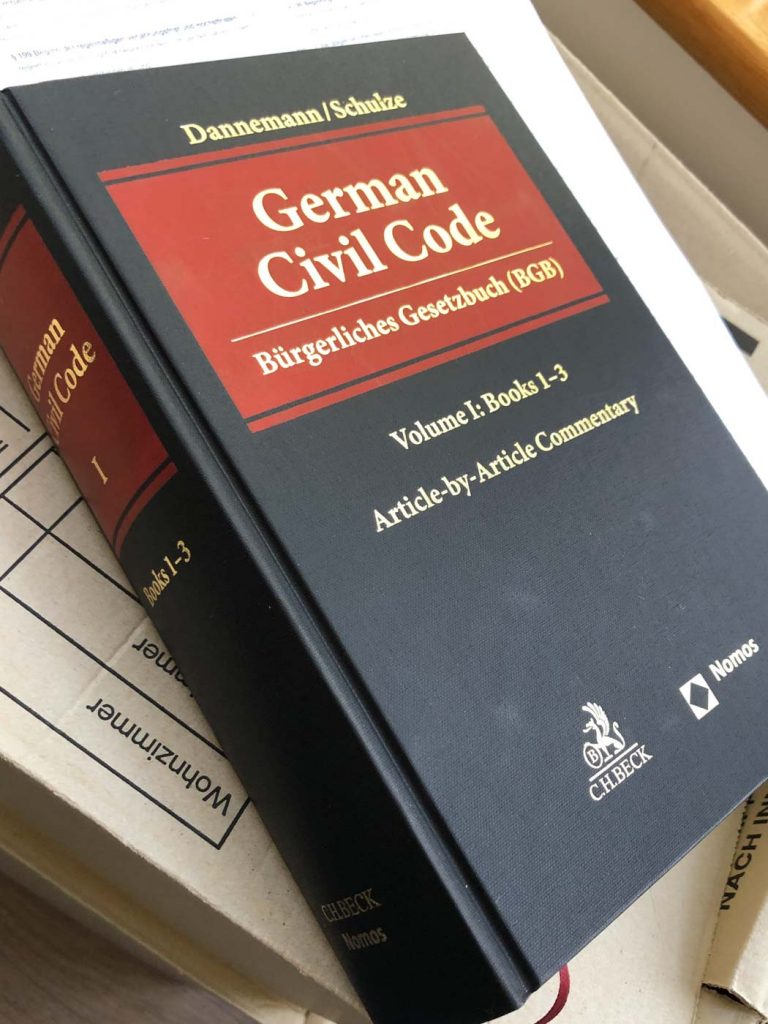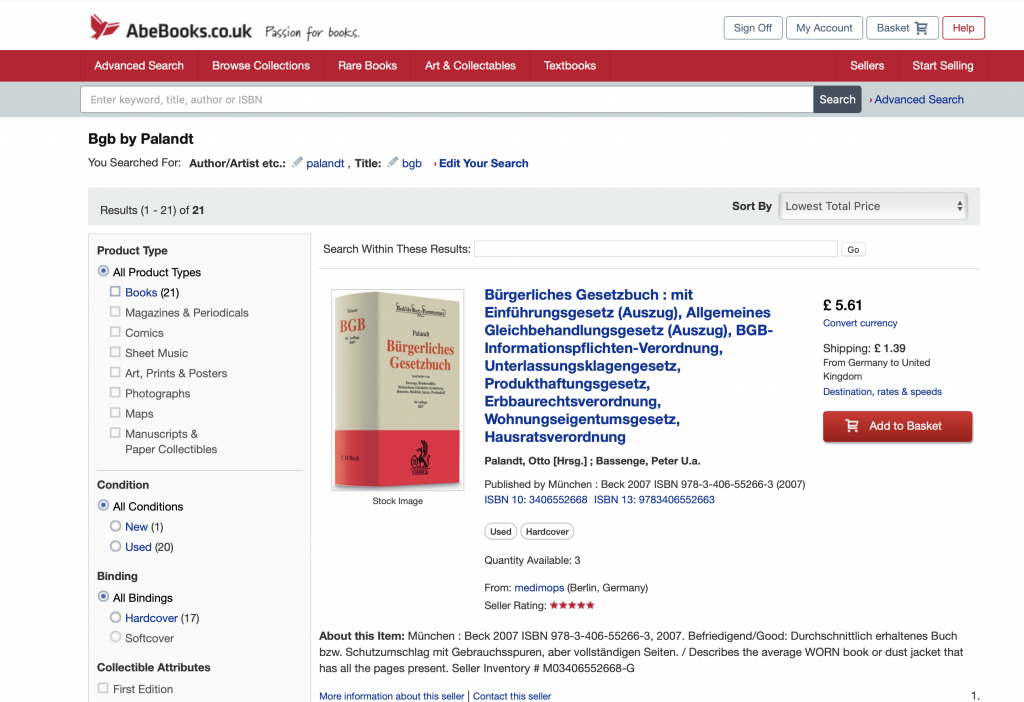Contrary to appearances, this blog is not yet dead. However, I did not mention that on 16 April it was 18 years old.
To make up for it, here is a photo I took on April 14 near Fenchurch Street Station.


The Pencil Talk blog has a new post on notarial string. I wrote about this in December 2004! (Links are unlikely to work now). Which reminds me that this blog is coming up for a birthday in April, if it survives that long.
Pencil Talk has some great photos of notarial string and seals. As it says, each German Land has a different-coloured string, and there is a federal one too. Useful links there, for instance to a list of all colours of string.
Here is a picture of what I found – some green English ribbon and some Federal German notarial string. 
There’s a link to an article on treasury tags in the Bleistift blog.
I think English notaries public use ribbon, as barristers do. The ribbon may be green, and for barristers pink, but it’s entered the language as ‘red tape’.
Translators in Germany sometimes use notarial string, but then they argue about whether they are allowed to or not.
Edited to add a picture of a bodger lookalike.

What I knew as a bodger, which punches a single hole in the corner of a bundle of papers, ready to take the treasury tag, did not have a hole for thread.
It’s been pointed out to me in a comment on the Bleistift blog that bodger may be called awl or pricker. Awl seems to be right. Here’s one of many.
I’m just logging in to make a gesture towards posting in 2021, post Brexit and mid-Covid.
I have only just discovered Nic Houghton’s blog 40% German, subtitled Pretzels, Beer and Confusion.
Nic is a Geordie who has been living in Germany since 2011 and writes about that. Topics include:
Annoying the Germans: Small Talk
The Eye of the Beer Holder
The Two Sides of Germany’s Cutting Edge
Germany’s Class System
How Healthy is Germany?
Königreich of Kebabs
and all those other topics I have wondered about over the years.
The first thing that caught my attention was a post on integration, Integrating the Germans. A recent discussion with local Bavarian villagers about immigrants to their village not really joining in turned out to be referring to people from Nuremberg who wanted to enjoy the village social life without contributing to it themselves.
This put in stark relief, in my mind at least, the problem of integration. How can anyone in Germany expect peoples from vastly different cultures to integrate into German life, if we still have problems integrating Germans into German life. It also made a mockery of the expectations that some people seem to have that immigrants from all over the world will suddenly become their particular brand of “German”. I’m not sure it can boiled down into some checklist. Politicians in the past have tried, making bold statements about the need for a Leitkultur or a Guiding culture that defines for immigrants the way they should behave, but which culture? Is it the one from the North or the South, the East or the West?
He also has a podcast, Decades from Home, together with Simon Maddox, which I’m listening to now.
Decades from Home is a podcast that looks at the weird and wonderful of German life from the perspective of two non-Germans.
With over two decades of living in Deutschland between them your hosts, Nic and Simon, find news articles and tell stories that show the many different sides to German life.
Die drei Hunde is a fairytale by, or collected by, Ludwig Bechstein, whose stories sold better than the Grimms’ in the 19th century.
The hero kills a dragon and wins the princess with the help of three dogs, who in the English version are called Salt, Pepper and Mustard. Their German names are Bring Speis’n, Zerreiß’n and Brich Stahl und Eisen (Bring Food, Tear Apart and Break Steel and Iron).
I wonder who thought of the English translation? I wonder if it was Anthea Bell. Bell, Anthea, tr. Fairy Tales of Ludwig Bechstein. Ill. Irene Schreiber. London: Abelard-Schuman, 1967. She did translate Asterix very wittily.
Note: this weblog now redirects to transblawg.co.uk. The old address will stop working before Brexit, so please change details in your address list.
I have written about Arbeitszeugnis/reference here before: Translating references/Übersetzung von Arbeitszeugnissen and Zur vollsten Zufriedenheit: voll verwirrend für Übersetzer. There is probably enough there.
But I have just attended two out of three webinars on German employment law run by the BDÜ and presented by Christin Dallmann, and she spoke at some length about Arbeitszeugnisse, assuming that we are often asked to translate them.
When I was in Germany, I was asked a few times but always refused. It depends what kinds of clients you work for, of course. As Frau Dallmann said, one could translate one literally and add a footnote explaining that German references, to which an employee has a legal right, are written in a secret language, at least the type called qualifiziertes Arbeitszeugnis rather than einfaches Arbeitszeugnis are.
I now understand even more about the secret language than I did before. The secret language has been confirmed and developed by the courts. They have four elements: employer’s satisfaction (Zufriedenheitsfaktor), time (Zeitfaktor), conduct (Verhaltensbeurteilung) and conclusion (Beendigungsformel). So even the last sentence may imply more than the surface indicates: whether the employee was dismissed, or whether the decision to leave was amicable.
Here’s a question on Toytown Germany from a Canadian who wants to understand his surprisingly positive-sounding Arbeitszeugnis – we never find out if it turned out to be negative.
And here is a good description of German references at Squire Patton Boggs.
Zeugnisfabrik apparently translate references in both directions. But the suggestion of converting an English reference into a German Arbeitszeugnis seems highly dubious and possibly illegal to me:
Accordingly, German Arbeitszeugnisse have to adhere to certain form specifications and the language in which they are written has developed peculiar characteristics that need to be skillfully balanced to ensure that all legal requirements are met.
As a consequence, the translation of a reference letter into an Arbeitszeugnis will always necessitate professional knowledge not only of both languages, but of German legal requirements, as well.








Dan Harris, of Harris Bricken, writes China Law Blog – the latest entry answers a translator’s question on how a US common-law contract ‘translated’ into Chinese works in practice: Drafting International Contracts That Work.
I am a translator helping a U.S. company on its contracts and — to put it mildly — things are not going well. The deal I’m translating for has been running into a lot of trouble because the American law firm that wrote the contracts has written them in highly complex legalese. …
Harris’s approach is: if a contract between a US and a Chinese company is drafted in long-winded US style (78 pages with a lot of boilerplate and elevated language in one case), his law firm has lawyers create an equivalent contract in Chinese, both simpler to understand and likely to be understood and accepted by the Chinese courts.
The post also quotes a 2015 post on the Adams on Contract Drafting blog where Ken Adams interviewed Steve Dickinson of China Law Blog on the same subject. Dickinson says:
I should also add that Chinese lawyers have major problems interpreting U.S. and British common law contracts. Their standard approach is to guess at the meaning and then mistranslate and then work with the mistranslation, leading to disaster on all counts.
Although it is clear that the Chinese prefer a short English contract written in a simple style, I get the impression that the Chinese version is always going to take precedence, plain English or not.
The problems of using English as a language for international contracts are dealt with in wonderful practical detail in Triebel/Vogenauer, Englisch als Vertragssprache.
Dannemann/Schulze: German Civil Code Volume I: Books 1 – 3 Article-by-Article (sic) Commentary
This is a huge thick tome which has just appeared. You might like to have a copy, although you might not like to pay the justified price of over £200 for it.

About 40 authors and over 2300 pages. Here’s the blurb at Beck Verlag.
But you can often find translations elsewhere. Austrian and Swiss statutes are similarly available.
There used to be an official site linking translations elsewhere (only as long as the German statutes were current, although translators and lawyers do sometimes need earlier versions). Sadly that cgerli site, cited at the bottom of the opening page of this blog, now only links to hotels in Salzburg. Before that, Robin Stocks used to keep a collection, but I think it would be too much for him and me to resurrect/update it.
There is a side-by-side translation of the new post-2002 bits by Gerhard Dannemann online at the German Law Archive.
The online translation of the BGB is thus described:
Übersetzung durch ein Übersetzer-Team des Langenscheidt Übersetzungsservice. Laufende Aktualisierung der Übersetzung durch Neil Mussett.
Translation provided by the Langenscheidt Translation Service. Translation regularly updated by Neil Mussett.
It only goes as far as the 2013 update of the German original.
2. The Dannemann/Schulze commentary quotes this online translation, plus its own versions of the post-2013 sections. It does not like the translation but I assume foreign lawyers would be confused if the online version, which they sometimes pass on to clients, were different. And it has the great advantage that the authors can point out which bits of the translation they don’t like. I have not yet many examples, as I have not had time to look very closely, but for example, the general part now includes Unternehmer and Verbraucher, which the online translation calls entrepreneur and consumer. The notes show how complex the situation is: the EU directives use the term trader. Dannemann has an online translation of the new parts of the BGB post-2002 and uses businessperson, which I like. The Commentary notes:
The definition of entrepreneur (Unternehmer) is of central relevance…Even though the German word is identical, it must be distinguished from Unternehmer as used in §§ 631 et seq.
By the way, I don’t understand why section 14, in theory identical to the online translation, capitalizes the word partnership:
An entrepreneur means a natural or legal person or a Partnership with legal personality who or which, when entering into a legal transaction, acts in exercise of his or its trade, business or profession.
The online BGB translation is often criticized by translators, but they can’t usually give examples of what they mean. Nor do I feel able to criticize them off the cuff – it’s only on the rare occasions when a specific section is problematic that it strikes me. I am giving the Unternehmer example to show how useful a commentary is.
3. Why does it say on the cover and title page “Article-by-Article Commentary”? Surely these are sections in English?
4. I love German commentaries. They are huge tomes with all sorts of details on the law, section by section. If you really need details on this Code, are not near a German law library and find this volume too expensive, I would recommend buying a used copy of Palandt’s commentary in German. Not dated before 2002, when the Code was greatly changed, but it need not be new. Here’s a screenshot from abebooks today, showing you could get the 2007 version most cheaply. There are later ones available too. I used to pick one up at a students’ bookshop in Germany.

It would answer most questions of the meaning of the Code.
5. This commentary is intended for English-speaking lawyers who know little German or little German law. It has a full introduction putting the Code in historical context. Each section has the original German (dated 2018 I think), the online translation and a number of notes under subheadings. There may be notes on the translation and on EU law.
6. I should repeat what I’ve written before, that the terminology of the BGB is consistent in what now seems an unnatural way. Many criticisms of the translations are based on a misunderstanding – they find a term unnatural and don’t realize it has to be consistent throughout, just like the original. This is why, as I’ve written before too, there must be footnotes. And this volume more than generously provides them.
You can buy this dictionary, or will soon be able to, in the paper version or as an Acolada digital version (already available) – I see it’s possible to rent it online for an annual fee. The Acolada version can be combined with other reference works, including Kettler’s dictionary of Intellectual Property and Creifelds.
https://acolada.de/woerterbuecher/woerterbuch-fuer-recht-wirtschaft-und-politik/
Lexikon/Wörterbuch
Buch. Hardcover (In Leinen)
6. Auflage. 2020
Rund 1102 S
C.H.BECK. ISBN 978-3-406-60914-5
(In Gemeinschaft mit Matthew Bender/New York und Helbing & Lichtenhahn/Basel)
Format (B x L): 16,0 x 24,0 cm
This is the 6th edition. The 5th is out of print.
If you are using a paper dictionary, I remember this and Romain both being quite time-consuming to use. The digital version will at least find your word promptly.
I have a problem with dictionaries nowadays. The updates are not always very comprehensive, or at least they don’t contain new information that is very useful for me. For example, the latest DE>EN Romain contained a large number of updates to include feminine terms. Maybe it used to say Rechtsanwalt and now it says Rechtsanwalt/Rechtsanwältin. I am afraid this had little effect on my use of the dictionary. My copy eventually fell apart and I then bought a second-hand copy of the earlier edition (3rd ed., 1994). This does the job for me. I think there may be a successor to Romain in the pipeline but have no information on this.
This blog has been around for far too long. Its current address is transblawg.co.uk. It may become necessary to change the url to transblawg.co.uk, but this depends on how many of my brain cells have survived the lockdown.